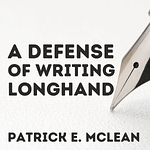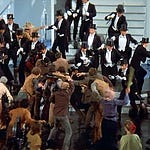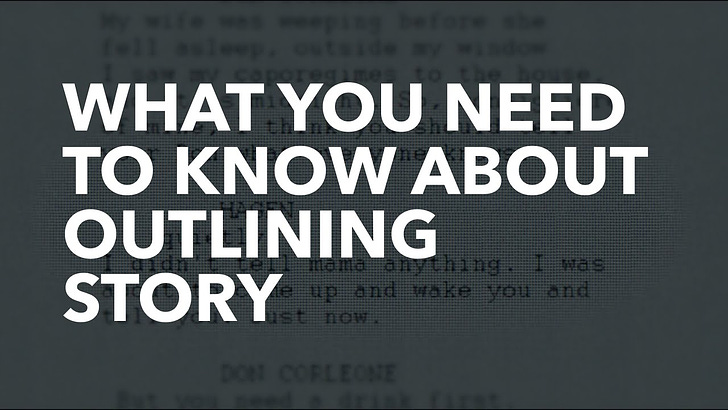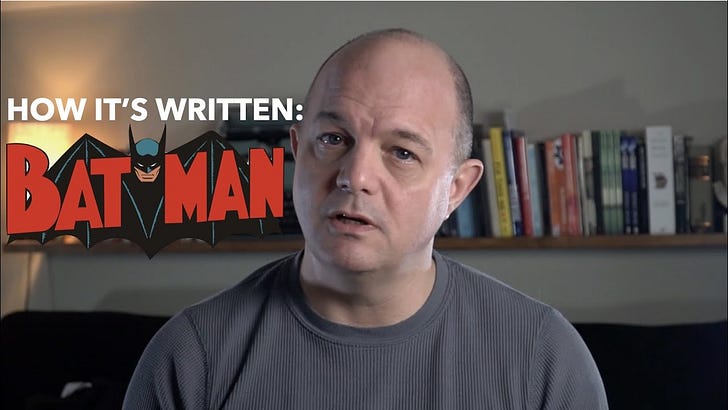
July 4th, a celebration of American Independence. seems to be suffering this year from a lack of enthusiasm. Many people aren’t happy with the state and direction of our country. Statistically, speaking, nobody is happy with Congress. Gallup say 78% the percent of people disapprove of the job that congress is doing. Well, if you can’t make everybody happy, you might as well make everybody disappointed?
And I’ve been thinking about that a lot today.
H.L. Mencken wrote: Every decent man is ashamed of the government he lives under.
And I think that is right. Government is, by its nature a blunt, clumsy instrument. I’m not saying it’s not necessary, I’m saying it’s never a thing to be proud of. And, reading history, I don’t think any government ever has been a thing a citizen could be proud of. If you’re the “citizens” in charge, sure, but everybody else — at best, it’a bad compromise.
Now there are those who say, quite vigorously, on this Fourth of July, that America is a horrible country, founded on and steeped in, slavery, theft racism, moral degradation, pain, murder, betrayal, genocide. And all of that it true — but more than that is true.
I’m certainly not proud of our current endless and seemingly pointless wars around the world. I am deeply disturbed by the fact that we have the highest per capita incarcerated population in the world. And our current hysteria and divisiveness as a people is certainly nothing to be proud of either. And, of course, we’re putting people in cages at the border.
And as much as I would like to hang this inhumane treatment of people on Trump (or any singular, prosecutable individual) the fact of the matter is this practice and countless others like this were going on under the last president. and the one before, and the one before and the one before. These are not personal evils, they are Kafkaesque evils of policy and procedure and can only be combatted as such.
If you are the kind of person who thinks that the problems go away when your team takes the day, I think you’re mistaken. And you are only making it harder to solve these kind of problems.
But all of that bad truth is only part of the story, the debit side of the ledger. And, to people who obsess about only that side, I ask, “Well, what exactly did you think a government was?”
And what about the other side of the ledger? When you do a full accounting, what’s our balance? Positive? Negative? By how much? Increasing. Decreasing. Why?
It’s very fashionable right now to say that America isn’t the greatest country in the world. The most popular articulation of this is a skillfully written speech from the series the Newsroom. You may be familiar with it, but if not I’ve put a link to it in show notes.
Pretty damning. But I’ve always had a problem with it. And the problem is hard to describe, but it starts with a question, “Okay, if America’s not the greatest country in the world, then what is?”
And I don’t mean this chauvinistically. As Chesterton said, ‘My country, right or wrong,’ is a thing that no patriot would think of saying. It is like saying, ‘My mother, drunk or sober.’
A country is going to be right and wrong, because it is composed of fallible individuals. And the individual is the correct level of analysis — unless you are some kind of crazy crypto racist mystic (a Nazi talking about the Ayrian people, for example) — a country is the sum total of people who inhabit it.
The useful part of critical thinking is to offer useful redress. So I don’t think a serious person merely criticizes, without offering something better. And maybe we have forgotten this because of the low, yet enjoyable art of the scathing movie, book or restaurant review. In which no suggestion is offered about how to make the bad thing better, because the remedy is for the bad restaurant or work of art to die. No one should engage with it.
You can apply the same principle to countries, if you like, but I’m pretty sure your cure will be worse than any disease you’ve diagnosed. For example, a quick look at Libya will show that even a bad government is better than no government.
But, sadly, this enthusiasm for critique without redress something of a theme in Western Culture for the last 200 or so years.
Let me use an analogy to demonstrate how it appears to me.
We all live in a house. And somebody finds a leak in the roof. It’s not good, people are getting wet! But instead of fixing the roof, or even putting a bucket under the leak — we tear the whole damn house down. Without having any place else to live.
And I fear that is what we are doing with the inheritances of our culture.
For example, religion. For thousands of years in the west the church provided a an overarching metaphysical structure that everybody fit into. Think Dante and his well-ordered circles of hell. And then people noticed some problems with it. Problems which I agree with, but after tearing down the whole superstructure of meaning, arguably the largest collaborative artistic effort in the history of man — it was replaced with nothing.
And now we are left with. Resentment. Existentialism. Despair. A bitter and ceaseless search for meaning — an unease that sits squarely at the center of every modern life.
For me this is what Nizchete’s oft-abused quote “God is dead and we have killed him.” is about. Maybe it was unavoidable. And there a complicated full accounting to be done for the good and bad of religion. Which I am also not going to attempt, because that would only drive what I though was going to be a fairly simple essay further out of control.
Back to my point:
Should you feel good about the U.S. on the 4th of July? Is America the Greatest Country in the world? How are do you actually supposed to measure that? And is it just against present day countries, or do we have to consider, how America stacks up against Ancient Egypt — or Athens — or the oldest continuous civilization in the world, China.
How is it possible to do a full accounting of such a thing? There are some things that you can measure, and some of those things we might have data for, but are the things we can measure the only important things?
I don’t know the answer to any of these questions. But what I do know is that America, from the word go, was trying to be the greatest country in the history of world. Not the biggest. Not the most powerful militarily. The greatest in a particular sense. The particular set of enlightenment ideas enacted in our form of government, had never been tried before. No other country in the world was founded upon the idea that all power derives from the of the people. That an individual has rights and those rights can be abused or ignored or violated, but they can’t be taken away. They are inalienable. Now many of these ideas were brewed so to speak in France and England.. But these places were countries long before these ideas existed. They were already glued together with a national identity
And what followed the adoption of these ideas was the greatest expansion of material prosperity and human flourishing in the history of the world. And this is not a phenomenon limited to the United States. Whereever these ideas gained ascendency, human flourishing followed.
Most people don’t have a sense of how bad the past really was and I mean all of it before 1900. The child mortality rate for the world before 1800 back to the dawn of humanity was 40%. That means that 40% of ALL children died before their 5th birthday. And that’s across cultures, socio-economic strata — Caesar’s kid was as likely to die as the farmer’s kid. And maybe more likely.
There are pretty convincing arguments that before we understood the germ theory of disease, having money and hiring a doctor with it actually lowered your chances of survival. Consider , bloodletting. And now consider bloodletting with an unsterilized knife.
I’ve included a link to a post at Our World in Data — The Short History of global living conditions and why it matters that we know it. If you want to flesh out this point.
If America is the exceptional nation, and I believe in the 20th century this was clearly true, it’s because she was founded not a on geography, but these ideas. What is it to be American? You live here and you buy into a set of ideas. An ideal.
And there’s no clear reason why that should have worked. All the darker tribal instincts of humanity, long honed by evolution, should have torn the project apart.
But here’s the defining thing about an ideal: You never live up to it. You live towards it. Sometimes you do better and sometimes you do worse. And sometimes you feel really good about yourself and you realize you’ve been screwing it up all along. Then you have the Civil War. And then, just in case you were feeling good about yourself and thinking that that particular sin was put to rest, you have the Civil Rights Movement. Which is something like a war, but waaaay waaaay more Civil.
So in defense of America’s greatness on this 4th of July, I’d like to offer a couple of examples.
First, is Martin Luther King. His fundamental appeal in his I have a Dream Speech was
I have a dream that one day this nation will rise up and live out the true meaning of its creed: “We hold these truths to be self-evident, that all men are created equal.”
Those are words written by Thomas Jefferson, the second sentence of the Declaration of Independence. Now you can recoil in horror that Thomas Jefferson owned slaves, or had an illegitimate child with one of slaves, Sally Hemmings.
You can also protest that Dr. King cheated on his wife. And, if a recent FBI file is to be believed, used his position as a minister to do so in some fairly salacious ways.
People aren’t perfect. But there’s a difference between a person who believes in an ideal and doesn’t live up to it with perfection and a person who lives for nothing and does it very well.
I believe the first kind of person is human.
And the second kind of person is a monster.
If America has been and will continue to be exceptional, it is not because of perfection, but because the people here are trying to live up to a better ideal. And a lot of the time we’ve succeed.
My second example is Norman Borlaug. In purely utilitarian terms I think you have to pick him as the greatest man of the 20th century. The Father of the Green Revolution. He invented dwarf wheat and, at a time when everybody thought that we would see widespread starvation, he used itt to double the crop yields in India. And then applied the same techniques to Rice.
It’s is estimated that Borlaug’s work saved billion lives. And for that he is the recipient of the Nobel Peace Prize. In his acceptance speech he said, “When the Nobel Peace Prize Committee designated me the recipient of the 1970 award for my contribution to the ‘green revolution’, they were in effect, I believe, selecting an individual to symbolize the vital role of agriculture and food production in a world that is hungry, both for bread and for peace”.
I select him for similar reasons here. The relentless drive of American innovation in the 20th century has helped to create unprecedented well-being around the world. Things like Jonas Salk and the eradication of polio is huge check in the plus column.
Here’s a fun one, as part of their focus on neglected tropical diseases, the Gates Foundation has provided the funding to eradicate Guinea worm disease. I’ve included a link in the show notes. It’s a terrible disease and really complex problem.But, in 1989 there were 900,000 reported cases in world. In 2017 there were 30. Humans are pretty much the only host for this parasite, so when it’s gone out of us, it’s gone.
To close this off. There are a lot of things about the United States. And if you can’t take one day to celebrate the good things, the highest things, the ideal of what this country has tried and is trying to be. I think you have a practical problem.
How do you expect anything to get better, if you don’t celebrate what’s good?
This Fourth of July, I am ashamed of the government I live under. But that’s been true for me for my entire adult life.
But a government isn’t a country. It’s a part of a country. Made up of the people just like everything else in a country.
So it seems fitting to close with the words of Carl Sandburg — who said, of himself — when I die it will probably be propped up in bed trying to do a poem about America.
And this from his poem, The People, Yes.
The people is a lighted believer and a hoper — and this is to be held against them?The panderers and the cheaters are to have their way in trading on the these lights of the people?
Not always, no, not always…













What to Do About the 4th of July?